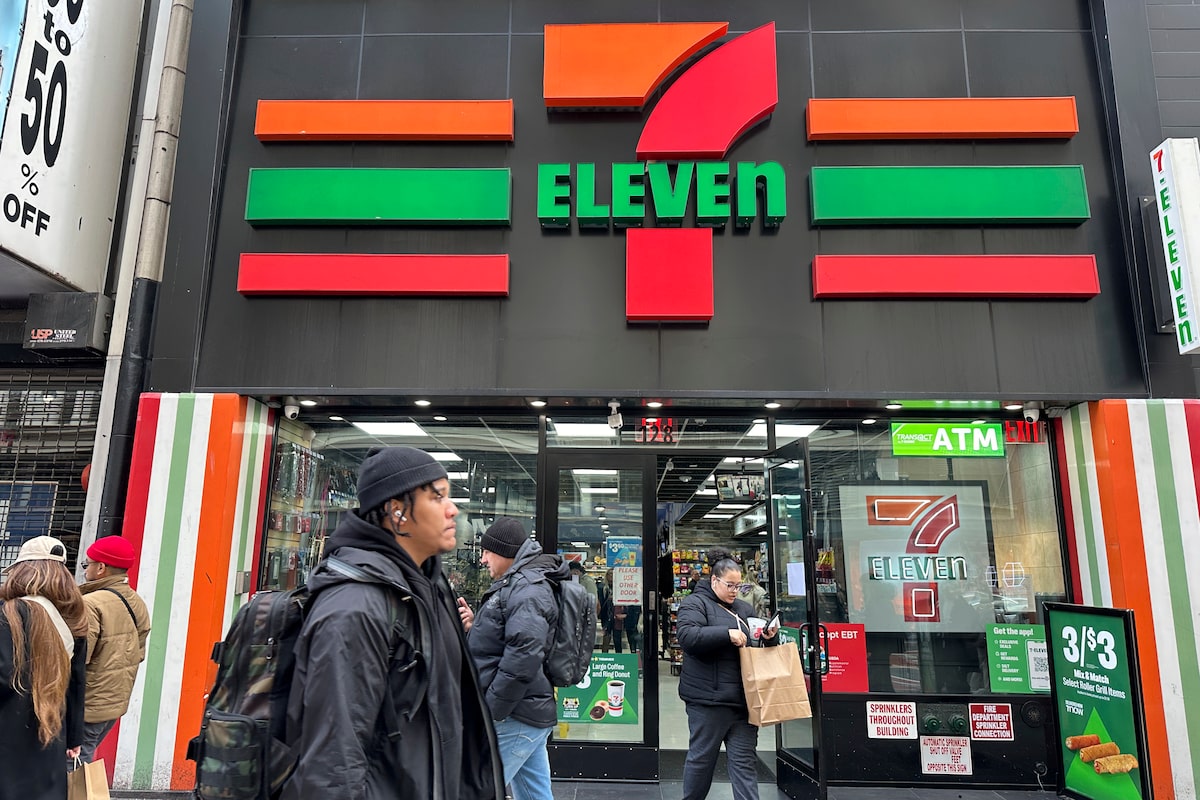Antitrust concerns in the United States were among the most significant hurdles a potential deal faced.Ted Shaffrey/The Associated Press
Seven & i Holdings Co., the Japanese parent company of the 7-Eleven chain, has issued a fiery public letter accusing Canada’s Alimentation Couche-Tard Inc. ATD-T of distorting facts after deal talks between the two companies broke off.
Couche-Tard, which owns the Circle K chain, tried for nearly a year to buy 7-Eleven for roughly US$46-billion, but walked away last week. Couche-Tard announced it was pulling the bid in its own blistering public letter accusing the Japanese company of deception and delay.
In its responding letter Tuesday, 7&i says Couche-Tard’s statement was “highly misleading” and argued the Japanese company “consistently engaged in good faith.”
It also claimed Couche-Tard failed to take antitrust concerns seriously and demonstrated “an unfortunate lack of knowledge of the Japanese market.”
“We are disappointed that [Couche-Tard] has decided to walk away from these discussions,” the 7&i statement said. “We are further disappointed that they have done so in a way that completely mischaracterizes both our engagement and the significant hurdles this transaction faced that they were not committed to resolving.”
Alimentation Couche-Tard looking for other targets after pulling Seven & i bid
Antitrust concerns in the United States were among the most significant hurdles a potential deal faced. Combining Circle K and 7-Eleven locations in the U.S. would have resulted in roughly 20,000 stores owned by the same company. Casey’s General Stores Inc., which has 2,600 stores, would come in a distant second.
Analysts have estimated Couche-Tard would have needed to sell as many as 2,000 locations in the United States to satisfy U.S. regulatory concerns with the proposal.
“ACT never deviated from the claim that they had a ‘clear path’ forward on antitrust approval,” 7&i said. “But that does not make it true.”
The U.S. Federal Trade Commission requested several calls with 7&i about the potential transaction, “two of which included numerous state Attorneys General, a highly unusual circumstance,” the Japanese company said.
“The critical question was whether ACT could identify a viable buyer who would meet with the FTC’s approval,” 7&i said. “They could not.”
Opinion: Couche-Tard shows institutional investors will back big dreams
Couche-Tard, which first approached 7&i about a potential transaction in August, 2024, declined to comment on the Japanese company’s allegations.
It took specific issue with the Canadian company’s claim that one of its meetings with executives in Tokyo was brief and “tightly scripted.”
“To suggest that our management presentations were scripted is to misunderstand Japanese culture,” 7&i said. “Sometimes being different isn’t wrong or an act of resistance.”
The deal would have been both the largest-ever foreign takeover of a Japanese company and the largest acquisition Couche-Tard has made since the company was founded in 1980.
It also represented the first major test of recent reforms to Japanese foreign investment rules designed to make it easier for cross-border transactions to occur. However, few anticipated the first offer to arrive under the new foreign takeover regime would be for one of the country’s most beloved corporate entities.
Hedge funds sort out winners and losers as Couche-Tard’s bid to buy 7-Eleven owner collapses
Japan is by far 7-Eleven’s largest market, with 21,756 locations in the country, representing roughly one-quarter of all its stores globally. There are nearly 3,000 7-Eleven stores in Tokyo alone, with many Japanese locations doubling as emergency shelters in case of natural disasters.
To address the cultural and business differences, Couche-Tard said it had a Japanese partner to educate the company about specifics of the Japanese market, but 7&i pushed back on this, saying Couche-Tard never shared that information with them.
Couche-Tard was planning to borrow tens of billions of dollars to finance the transaction had a deal ultimately been reached. On Tuesday, the 7-Eleven parent said Couche-Tard is facing “financial and market challenges” and that “financing markets have changed.”
“But there is no need to blame Seven & i for that reality,” the Japanese company said. “ACT decided on its own it was easier to walk away.”

